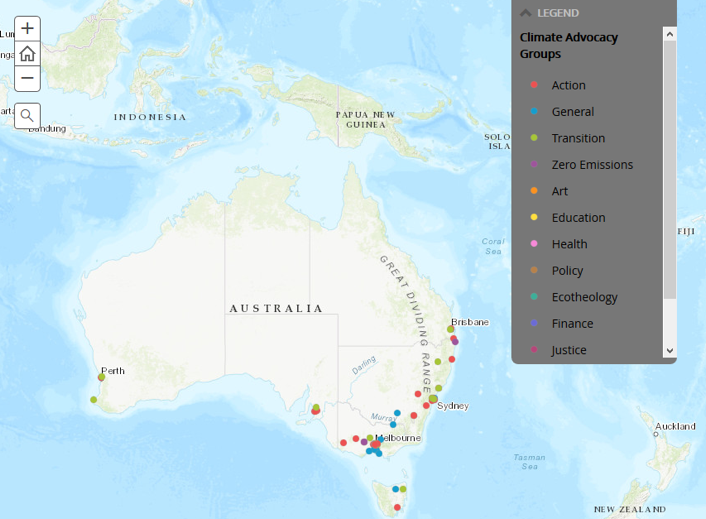|
Activists are time and resource poor. They create social change by making quick decisions in stressful conditions, and often suffer disproportionately for their efforts. Given the urgency of our social and environmental challenges, linking activists with the latest research on topics ranging from how to engage in effective communication, to tactical decision making, to activist self-care, is more important than ever. Yet this research is mostly hidden behind paywalls or it is time consuming to acquire and apply. Thankfully, digital technologies offer a new opportunity to bridge the activist-researcher. Throughout my time here in the Social Change Lab, I’ve experimented with piloting effective research dissemination. This has lead me to the development of my website, www.earthactivists.com.au. This website began as a communication vehicle for various projects created during my time as a fellow in the University of Queensland Digital Research Fellowship program. The website is based on an initial dataset of 497 Australian environmental groups and 901 environmental campaigns. Mapped through the Esri ArcGIS online platform, the data and associated map will allow activists to easily view campaigns across all environmental issues, compare the data available on them, and track the campaign outcomes over time. Combined with archives collected on past environmental campaigns, one goal of the project is to create an open and accessible ‘treasure chest’ of information on Australia’s rich and diverse environmental movement. Open data can inform what type of activism is more likely to succeed; for example, data collected on over 100 years of protests demonstrates the surprising success rate of non-violent civil resistance as opposed to violence insurgencies. But it can also help enable stronger and more connected activists, reducing the ‘activist fatigue’ experienced through isolation and burnout. To this end, the website hosts stories of women fighting climate change. It also provides insights from experienced environmental campaigners on the highs and lows of activism, how they define success, and how they prioritise and acquire resources for their work. This website, still in its nascent stage, has been informed by international examples of accessible and open data on social change movements. One of the most influential of these examples is the Nonviolent and Violent Campaigns and Outcomes Data Project (NAVCO). This publically available dataset, initiated by Erica Chenoweth, has generated findings of international significance about the importance of non-violence civil resistance, and initiated a new research direction in civil resistance. Another successful open data initiative is that of the Environmental Justice Atlas (ejatlas.com). Centred on a global map of large scale environmental civil resistance campaigns, the project aims to both serve as a tool for informing activism and advocacy, and to foster increased academic research on the topic. Containing information on 2,100 environmental justice case studies, this project has international collaborators both contributing to new case studies and utilising existing studies for their activism and research. These examples demonstrate the new ways digital technology can be used as a bridge between activists and researchers. We have such a rich history of activists and activism around the globe. Collecting and sharing detailed empirical data about social and environmental collective action can help celebrate the work of those who fought for social and environmental justice in the past. But equally importantly, it can help inform how we can generate the urgent action we need to secure our future. In this time of crisis, bringing activists and researchers together is one more important than ever.
- Robyn Gulliver
0 Comments
Your comment will be posted after it is approved.
Leave a Reply. |
AuthorsAll researchers in the Social Change Lab contribute to the "Do Good" blog. Click the author's name at the bottom of any post to learn more about their research or get in touch. Categories
All
Archive
July 2024
|
Social Change Lab
Join our mailing list!Click the button below to join our mailing list:
Social Change Lab supports crowdfunding of the research and support for the team! To donate to the lab, please click the button below! (Tax deductible receipts are provided via UQ’s secure donation website.) If you’d like to fund a specific project or student internship, you can also reach out directly!
|
LocationSocial Change Lab
School of Psychology McElwain Building The University of Queensland St Lucia, QLD 4072 Australia |
Check out our Privacy Policy
Copyright © 2017

 RSS Feed
RSS Feed
